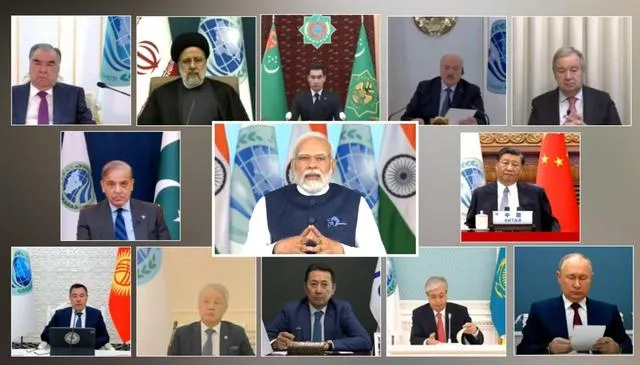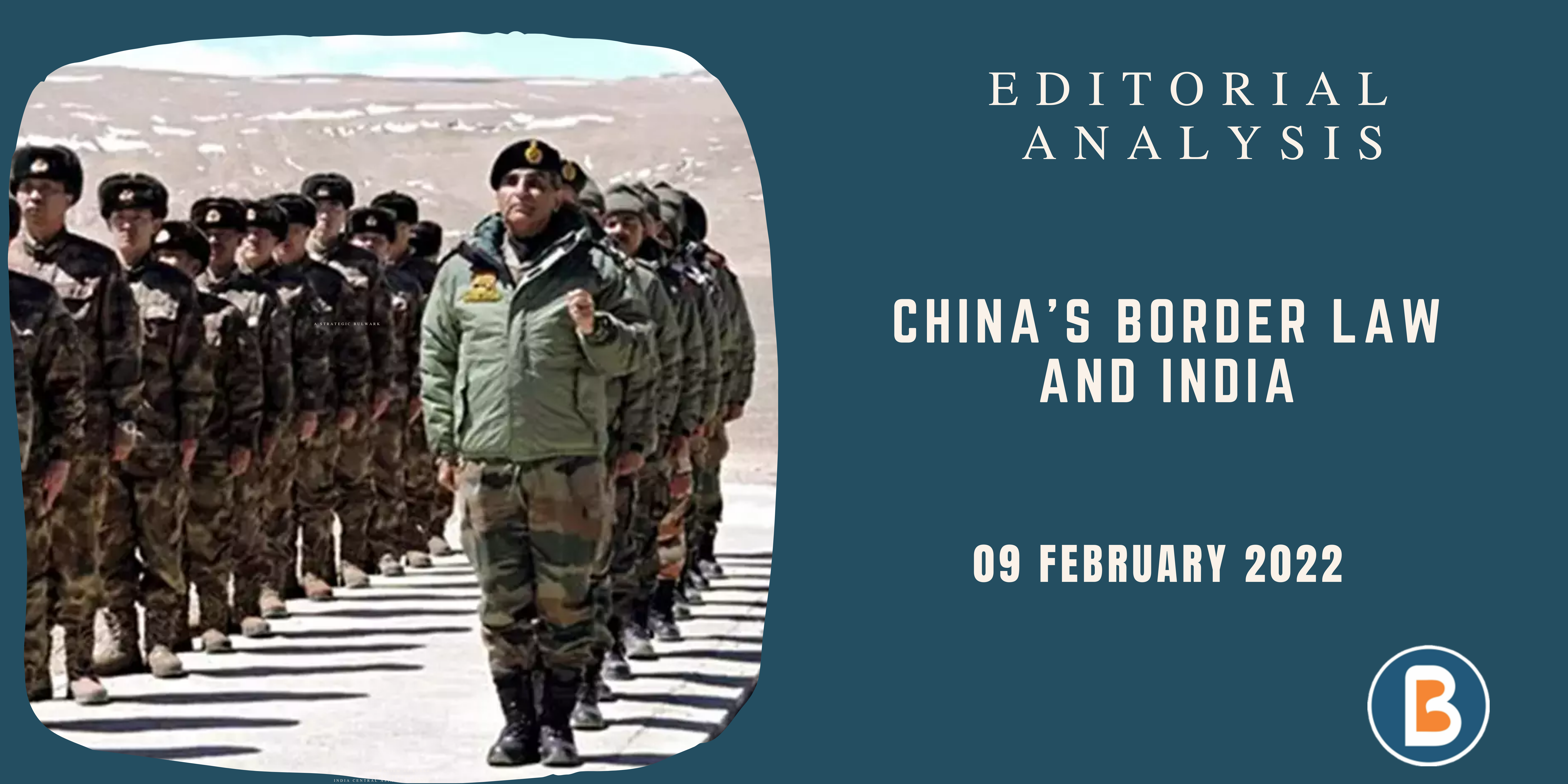India’s Virtual SCO Summit
Context:
The recent virtual summit of the Shanghai Cooperation Organisation (SCO) has raised questions about India’s evolving approach and priorities within the organization.
Relevance:
GS-02- (Regional Groupings) (Important International Institutions)
Prelims:
- Shanghai Cooperation Organization
- UNSC.
Mains Questions:
- Discuss the evolving dynamics of India-China relations within the SCO framework and the impact of China’s actions on India’s stance. (150 words)
- Evaluate India’s role in the Eurasian game and the measures it should undertake to maintain its influence in the region. (200 words)
Dimensions of the article:
- India’s Shift in SCO Summit Format: Dilution of Objectives?
- Re-appraisal of Indian Interests: China’s Actions as a Catalyst
- The Implications of Connectivity and the BRI
- Maintaining Ties with Eurasia: Beyond Buddhist Heritage
- Silence on Ukraine: Implications and Diplomatic Standpoints
India’s Shift in SCO Summit Format: Dilution of Objectives?
- India’s Foreign Secretary, Vinay Kwatra, defended the virtual nature of the Shanghai Cooperation Organisation (SCO) summit, asserting that it did not imply a dilution of India’s objectives.
- However, the absence of a clear explanation for the virtual format raises concerns about India’s changing approaches and its diminishing commitment to the SCO.
- Holding the summit physically or in a hybrid manner would have added greater significance to India’s involvement.
Re-appraisal of Indian Interests: China’s Actions as a Catalyst
- China’s actions towards India in 2020, coupled with the evolving international order, have compelled a re-appraisal of India’s interests within the SCO.
- Prime Minister Narendra Modi’s optimistic approach towards resolving contentious issues with Chinese President Xi Jinping during India’s full membership in 2017 now appears less tenable.
- India’s combative assertiveness on issues such as terrorism and connectivity reflects fundamental differences with China and Pakistan.
- This assertiveness also highlights India’s isolation within the organization on connectivity matters.
The Implications of Connectivity and the BRI
- Connectivity is a core issue within the SCO, but India finds itself increasingly marginalized in this domain.
- Prime Minister Modi reiterated India’s stance that connectivity projects should respect national sovereignty, explicitly targeting China’s Belt and Road Initiative (BRI) and the China-Pakistan Economic Corridor (CPEC).
- However, other SCO members remain enthusiastic supporters of the BRI, posing a challenge for India.
- India must be cautious of China’s efforts to integrate Eurasia, potentially shutting India out of the region with Pakistan’s support.
Maintaining Ties with Eurasia: Beyond Buddhist Heritage
- While promoting Buddhist heritage is commendable, it may not be sufficient to sway SCO members towards India or prevent their deepening engagement with China. India should prioritize the development of connectivity through projects such as the Chabahar port in Iran, despite the challenges it presents.
- Establishing active air corridors with Central Asian Republics and adopting a pragmatic policy towards Afghanistan are also crucial for India to sustain its presence in the Eurasian game.
Silence on Ukraine: Implications and Diplomatic Standpoints
- The SCO Declaration remained conspicuously silent on the Ukraine war, with India, Pakistan, and China refraining from addressing the issue in their summit statements.
- Russian President Vladimir Putin, however, mentioned Ukraine and criticized the West. Mr. Xi, a longstanding supporter of Mr. Putin during the conflict, did not express support for Russia in his summit statement. This silence raises questions about the cohesion and alignment of SCO member states on critical geopolitical matters.
Way Forward:
- Strengthening strategic engagement, especially in counterterrorism efforts, remains imperative.
- Additionally, India should focus on advancing connectivity initiatives while striking a delicate balance between opposing the BRI and engaging with Eurasian nations.
- Vigilance regarding China’s regional integration efforts and maintaining diplomatic channels with key stakeholders will be crucial for India’s future positioning.
Conclusion:
India’s virtual SCO summit has sparked discussions about its evolving approaches and emerging challenges within the organization. China’s actions, particularly in 2020, have prompted a re-evaluation of India’s interests and priorities. The virtual format, though avoiding controversies, has underscored India’s current standing in Eurasia and its western neighborhood. As India prepares for upcoming summits, such as BRICS and G-20, it must carefully navigate regional dynamics to safeguard its strategic objectives and secure a prominent role on the global diplomatic stage.





